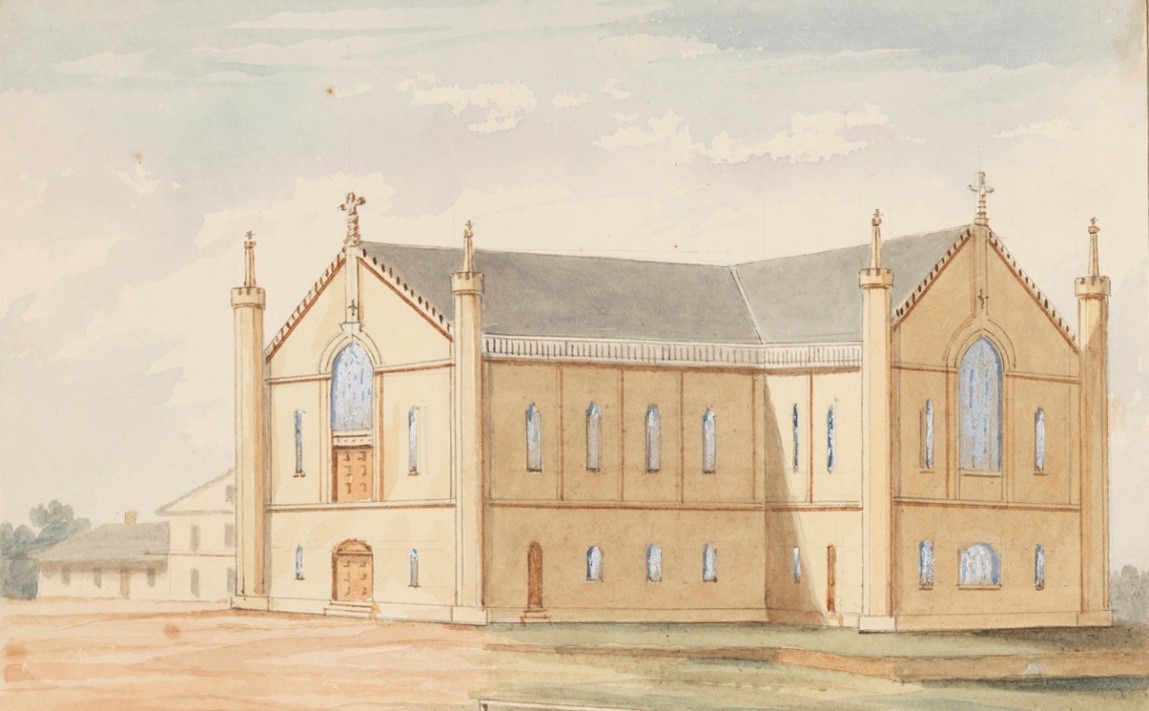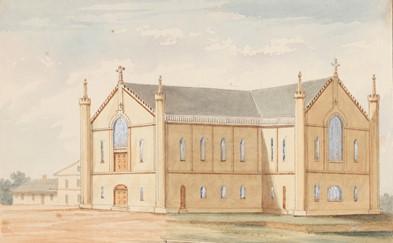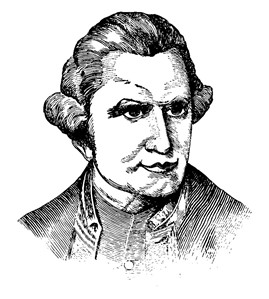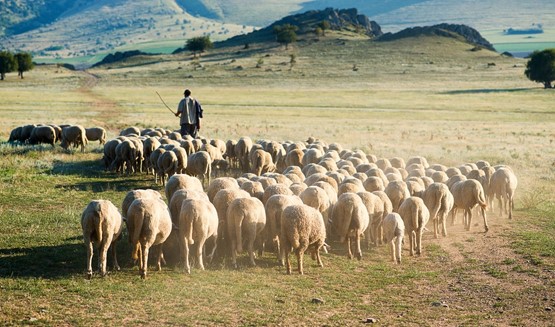We often say these words when we speak about the life and mission of Jesus Christ and I must say I firmly believe that Christianity has that great capacity to give life meaning and purpose. Of course, I would like to think that this could be true for everyone and yet in this present time, of what is known as Post-modernity, this is sadly rejected or viewed with suspicion and scepticism.
As I think about Vocation Sunday, I do so, acknowledging that on this day, 3 May, two hundred years ago, Irish-born priests, Fr John Therry and Fr Philip Conolly arrived in Australia as the first official priests in the colony. The first convict priests on record to arrive in the colony were Fr James Dixon and Fr Peter O’Neill from Ireland. They were tolerated to a degree until the Castle Hill Uprising of 1804. At this time, the established religion in the colony was the Church of England, and Catholics were forbidden to publicly practise their faith.

 It is amazing to think that both Therry and Conolly chose to leave their homeland and come to a place so far removed from anything they had known or experienced, most likely in response to God’s call to mission to Catholics who had found themselves at the ‘bottom’ of the world, physically, socially and morally. Fr Therry actively ministered on the east coast of mainland Australia while Fr Conolly went to Tasmania in 1821.
It is amazing to think that both Therry and Conolly chose to leave their homeland and come to a place so far removed from anything they had known or experienced, most likely in response to God’s call to mission to Catholics who had found themselves at the ‘bottom’ of the world, physically, socially and morally. Fr Therry actively ministered on the east coast of mainland Australia while Fr Conolly went to Tasmania in 1821.
Fr Therry spent over 40 years as a priest here and left a remarkable legacy, helping to establish the first church where St Mary’s Cathedral now stands. He travelled on horseback extensively, and the Therry Centre at East Maitland is named after him because he also visited East Maitland to visit and pray for those convicts who were executed on Stockade Hill in East Maitland. Upon arriving in local communities, he would baptise, marry, anoint the sick and pray for the dead. The faith of those mostly Irish Catholics was kept alive without the sacraments, but with devotions and prayer.
I note that also in the past week we have commemorated 250 years since Captain James Cook landed on the shores of the east coast of Australia at Botany Bay or Kamay. I am unable to make reference to both of these points of European history without acknowledging the, at least, 60,000 years of Aboriginal connection to land.
Professor John Maynard, the director of the Purai Global Indigenous History Centre at the University of Newcastle wrote the following words as part of an article, 1770: a collision of catastrophic proportions, in the Newcastle Herald on Saturday 2 May:
The impact of 1770 has never eased for Aboriginal people. It was a collision of catastrophic proportions. The whole impact - of invasion, dispossession, cultural destruction, occupation onto assimilation, segregation - all of these things that came after 1770.
Anything you want to measure - Aboriginal health, education, employment, housing, youth suicide, incarceration - we have the worst stats. That has been a continuation, a reality of the failure of government to recognise what has happened in the past and actually do something about it in the present to fix it for the future.
We've had decades of governments saying to us, "We know what's best for you." But when it comes to Aboriginal wellbeing, the only people to listen to are Aboriginal people, and we've never been put in the position. We've been raising our voices for a long time now, but some people see that as a threat and are not prepared to listen.
An honest reckoning of the reality of Cook and what came after won't heal things overnight. But it's a starting point, from which we can join hands and walk together towards a shared future.
A balanced understanding of the past will help us build a future - it is of critical importance.
We just have so much to learn and consider and grow as humans.
During this Easter Season we are all called to be good shepherds, to recognise the voice of Jesus in those around us, those whose lives reveal love, compassion, justice, and self-sacrifice. In Evangelii Gaudium (n24) Pope Francis invites us to be evanglisers who take on the “smell of the sheep”.
An evangelizing community gets involved by word and deed in people’s daily lives; it bridges distances, it is willing to abase itself if necessary, and it embraces human life, touching the suffering flesh of Christ in others. Evangelizers thus take on the “smell of the sheep” and the sheep are willing to hear their voice. An evangelizing community is also supportive, standing by people at every step of the way, no matter how difficult or lengthy this may prove to be. It is familiar with patient expectation and apostolic endurance.
During his papacy, Pope Francis has been reminding us to be shepherds with the smell of sheep.
 Presently, on our diocesan website www.mn.catholic.org.au you will find a new tile on the front page titled Prayer and Formation Resources. I invite you to go there and explore the many opportunities for your faith to be nourished. I know a number of people are visiting websites with daily online Masses, but I also hope they are doing more than that to keep growing their faith during this time of isolation. We are contained and yet the gate is there for you to go through and to follow the shepherd. What is the voice of God’s grace calling you/us to? We are never too old to be called and to respond.
Presently, on our diocesan website www.mn.catholic.org.au you will find a new tile on the front page titled Prayer and Formation Resources. I invite you to go there and explore the many opportunities for your faith to be nourished. I know a number of people are visiting websites with daily online Masses, but I also hope they are doing more than that to keep growing their faith during this time of isolation. We are contained and yet the gate is there for you to go through and to follow the shepherd. What is the voice of God’s grace calling you/us to? We are never too old to be called and to respond.
I am also aware that on 1 May we marked the feast day of St Joseph the Worker. As part of the message put out from the Australian Catholic Bishops Conference the following prayer was shared:
God, give us work so that we may share our talents with others and know the dignity and satisfaction that you give us through our efforts. Give us patience while you open doors and wisdom to see your will. Keep our families in your care, and provide for all our needs. Never let stress diminish our love for each other nor our work as part of your healing ministry. In your name we pray. Amen.
And to finish the message I use the words of Pope Francis at the end of his Message for the 57th World Day of Prayer for Vocations:
Dear friends, on this day in particular, but also in the ordinary pastoral life of our communities, I ask the Church to continue to promote vocations. May she touch the hearts of the faithful and enable each of them to discover with gratitude God’s call in their lives, to find courage to say “yes” to God, to overcome all weariness through faith in Christ, and to make of their lives a song of praise for God, for their brothers and sisters, and for the whole world. May the Virgin Mary accompany us and intercede for us.
I hope this weekly message is keeping you connected to our faith and ongoing work of the Church.
In God we trust.